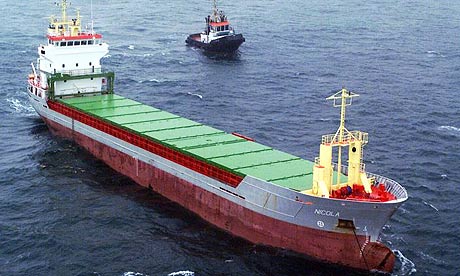Many of you, among the multitudes of dedicated followers of this blog, must have wondered if DCMetroTransit had withered and died on the vine. Not so! The blog remains, though fairly well neglected over the past year. With the events of the last year, I've been a little pre-occupied. Highlights: I spent a week in the hospital (bad), but I also adopted a baby boy (good!). My wife and I are over the moon about the new addition to the family. He's funny, super-cute, smart: in other words, a worthy addition to the clan. :-)
But enough personal stuff: this blog is about transportation, for the most part. And one of the projects I have worked on over the last few years, as the economy and automobile industry faced serious turmoil, is a map of the automobile industry, showing the comings and goings of brands and corporate marriages over the last few decades. Well, it is way past time for an update - but here it is anyway (click on the picture to see it larger). I will call your attention to the items highlighted in yellow. Here is a summary of what has changed since the last auto-map update, published February 27, 2010 - how the time does fly:
Hummer and Saab, formerly parts of GM's far-flung empire, were both facing spin-off in early 2010. Unfortunately, time and luck has run out for both brands: Hummer was discontinued in 2010, and Saab is in it's final death throes as we speak. Saab was ultimately unable to come to terms with GM on the sale/transfer of the car giant's technology, which underpins much of Saab's remaining line-up. GM feared that uncontrolled transfer of its technology to a Chinese (or other) automaker would ultimately come back to haunt the Detroit titan. As of this writing, liquidation of the Swedish brand appears imminent.
Volkswagon acquired 20% ownership of Suzuki in 2010, but the Japanese automaker remains largely independent of both former partner GM as well as the makers of the Beetle.
Fiat-Chrysler is on a bit on a roll, with sales soaring in 2012 as its American product portfolio continues to be refined and expanded. Chrysler carved off its old Dodge Truck division in 2009 to create the "Ram" brand, and in 2011 began promoting its in-house performance sub-brand "SRT". The SRT offerings include hotted-up versions of the Chrysler 300, Dodge Challenger and Charger, Jeep Grand Cherokee, the soon-to-arrive SRT Viper - and even the new Dodge Dart may have an SRT representative.
Ford completed the sale of Volvo to Chinese automaker Geely in 2010 - apparently, their concerns over technology transfer were not as acute as GM's, since Volvo continues to use much of their own technology, not parent Ford's. The Ford-Volvo divorce was therefore much cleaner than GM-Saab.
Ford also shuttered the Mercury brand for good in 2011. No more Comets, Zephyrs, or Cougars for you!
And Daimler ended its relationship with Penske to distribute the diminuitive Smart in the U.S. - they now handle distribution directly.
Stay tuned for more blog updates, including (I hope) more on developments in public transportation in DC - there is definitely news to report for Metro, and not as much for streetcars as I'd like. Until next time...
Do Something: The week of April 15, 2024
1 hour ago


